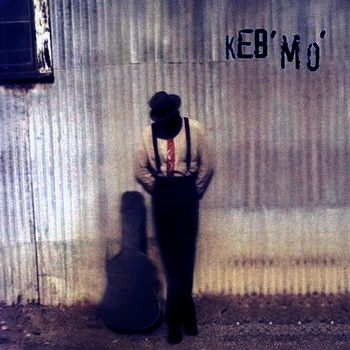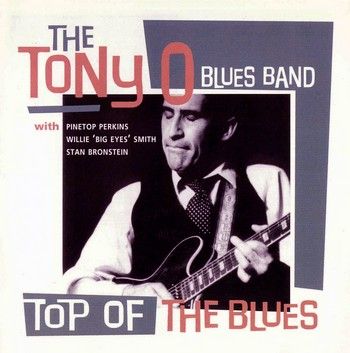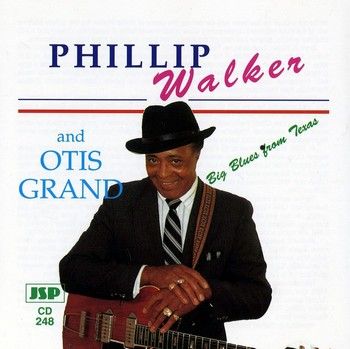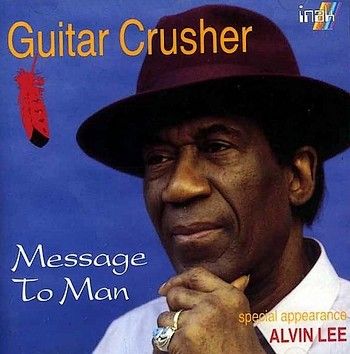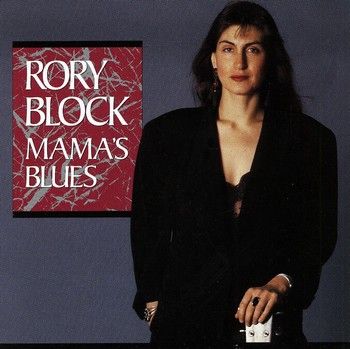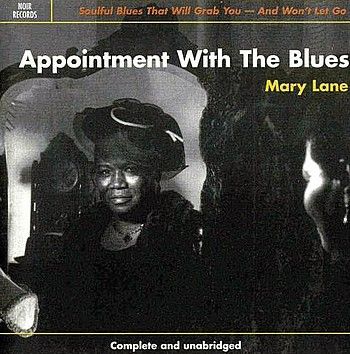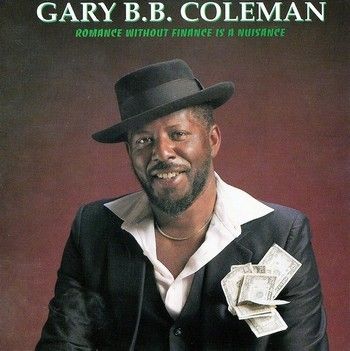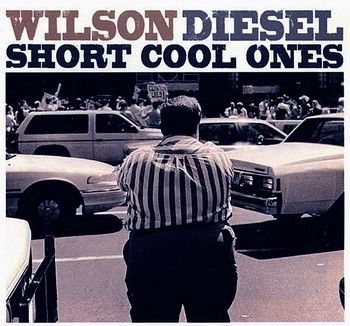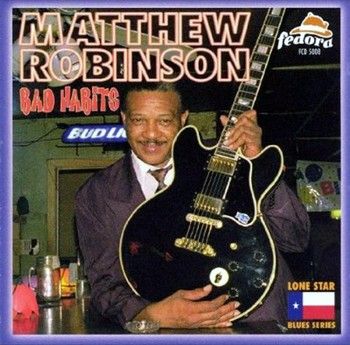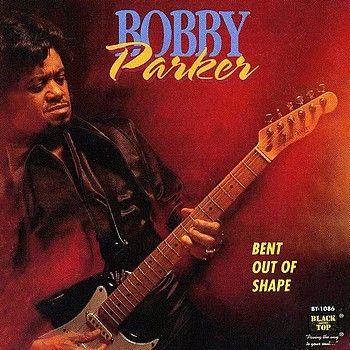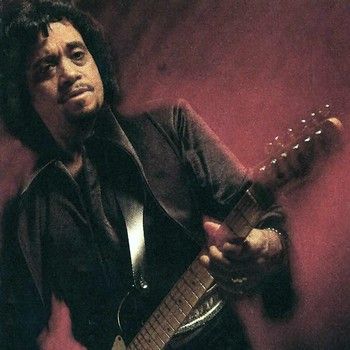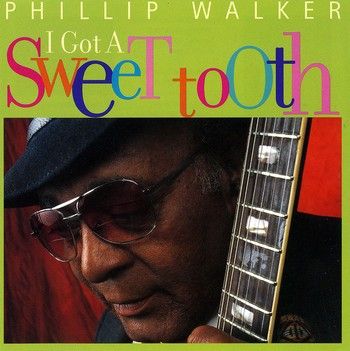
Tracy Nelson - In The Here And Now - 1993 - Rounder
Tracy Nelson has always brought a wealth of blues feeling to her work, but being bluesy doesn't necessarily mean that one is actually singing the blues -- one can certainly bring the feeling of the blues to rock, R&B, reggae, country, bluegrass, zydeco, or jazz (all of which have been affected by the blues). In fact, Nelson has often showed listeners just how blues-minded rock, soul, or country can be. In the Here and Now, however, isn't just bluesy -- it is blues-oriented, and this time, there are plenty of tracks that actually have 12 bars. Nelson, who was 45 when this album came out in 1993, really soars on passionate performances of "Motherless Child Blues" and "Go Down Sunshine" as well as Chicago blues gems like Elmore James' "It Hurts Me Too" and Willie Dixon's "Whatever I Am, You Made Me." And Nelson never sounded more confident than she does on "Please Send Me Someone to Love," which finds her performing a duet with veteran New Orleans soul great Irma Thomas. This Percy Mayfield classic, which was first recorded in 1950, is one of those standards that has been beaten to death over the years -- as great as the song is, there is such a thing as overkill. But Nelson and Thomas manage to make the tune sound fresh and vital, which is impressive because their 1993 version was recorded 43 years after the original version. Nelson, in fact, was only two years old when Mayfield first recorded "Please Send Me Someone to Love." In the Here and Now is hardly the only Nelson CD that is worth owning, but it is safe to say that it is among the strongest albums that she provided in the '90s. © Alex Henderson © 2012 Rovi Corporation. All Rights Reserved http://www.allmusic.com/album/in-the-here-and-now-r184747/review
"In The Here And Now" is a powerful reminder that there are artists out there who are as equally talented as the great Bonnie Raitt, Emmylou Harris, Linda Ronstadt, and many more without receiving the due credit. Since the mid-60s, Tracy has sung her unique blues as a solo artist, with the great Mother Earth, and with many top blues artist in the country. With her voice of devastating power and deep emotion, she burns with a blue flame. New songs like "Living the Blues" blend in beautifully with great standards like Elmore James' "lt Hurts Me Too" and Percy Mayfield's wonderful "Please Send Me Someone to Love", sung as a duet with the great New Orleans soul singer Irma Thomas. A briliant album and VHR by A.O.O.F.C. Buy Tracy's "You'll Never Be a Stranger at My Door" album, and for music in the same vein listen to Irma Thomas' classic "True Believer" album. Support great Blues/R&B music. Check this blog for other Tracy Nelson/Mother Earth/Irma Thomas releases [All tracks @ 320 Kbps: File size = 101 Mb]
TRACKS / COMPOSERS
1 Every Night of the Week - Ted Jarrett 3:32
2 Living the Blues - Tracy Nelson, Gary Nicholson 4:09
3 In the Here and Now - Lucy Keeble, Andy McMahon, Jack Pearson 3:47
4 Walk Away - Oliver Sain 4:55
5 Go Down, Sunshine - Public Domain , Hociel Thomas 4:13
6 Motherless Child Blues - Public Domain , Elvie Thomas 4:26
7 When It All Comes Down - Will Jennings, Joe Sample 3:14
8 It Hurts Me Too - Elmore James 3:15
9 Whatever I Am, You Made Me - Willie Dixon 4:05
10 Miss You Like the Devil - Jas Moore 3:59
11 Please Send Me Someone to Love - Percy Mayfield 4:56
MUSICIANS
Tracy Nelson - Vocals, Background Vocals
Gary Nicholson - Guitar
Mike Henderson - Guitar, Harp
Toni Sehulster, Ron Eoff, Mike Doster - Bass
Reese Wynans - Organ, Piano
Greg Wetzel - Piano
John Gardner - Drums
Crispin Cioe - Alto & Baritone Sax
Arno Hecht - Tenor Sax
Laurence Etkin - Trumpet
Bob Funk - Trombone
Uptown Horns Group - Horns
Charlie Musselwhite - Harp
Irma Thomas - Duet Vocals with Tracy on "Please Send Me Someone to Love"
Jonell Mosser, Pebble Daniel, Nanette Britt - Background Vocals
Bill Allen - Speech/Speaker/Speaking Part
BIO
A very versatile and talented vocalist, Tracy Nelson is better known for her role as lead singer of Mother Earth. The Nashville sextet had three albums in a country-rock vein make the charts in the late '60s and early '70s. But Nelson is just as capable in soul, R&B, and blues, though she hasn't released many records in that style. Her albums for Flying Fish were more indicative of her eclecticism, but her R&B and blues roots are really evident on her 1993 release In the Here and Now and 1995's I Feel So Good -- both on Rounder Records. Born in California but raised in Madison, WI, Nelson began playing music when she was a student at the University of Wisconsin. Nelson began singing folk and blues at coffeehouses and R&B and rock & roll at parties with a covers band called the Fabulous Imitators. In 1964, she recorded an album for Prestige, Deep Are the Roots, which was produced by Sam Charters. Two years after recording Deep Are the Roots, Nelson headed out to the West Coast, spending some time in Los Angeles before settling in San Francisco. After arriving in San Francisco, she formed Mother Earth in 1968, moving the group to Nashville the following year. The band stayed together for five years, recording several albums for Mercury Records, among a handful of other labels. Nelson left the band in the mid-'70s, embarking on a solo career that saw her release albums for a variety of labels, including Columbia, Atlantic, and Flying Fish. Nelson continued to record and perform into the '90s. In 1993, she released In the Here and Now, her first album for Rounder Records and, not coincidentally, her first straight blues record since she began recording in the '60s. Nelson followed In the Here and Now with several acclaimed records of gritty blues-rock for Rounder, switching to Memphis International for the release of You'll Never Be a Stranger at My Door in 2007. © Ron Wynn © 2012 Rovi Corporation. All Rights Reserved http://www.allmusic.com/artist/tracy-nelson-p11284/biography


